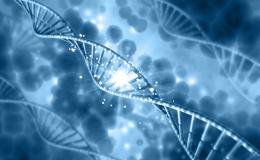How to Prevent Esophageal Cancer
April 27, 2021
As humans, we have genetic susceptibilities to a variety of different health conditions, including cancer, but environmental factors and lifestyle choices can play an equally important role in the cancers and other diseases we develop during our lifetime.

Esophageal cancer is no exception. While the disease only accounts for 1% of cancer diagnoses in the U.S.,1 the prognosis for esophageal cancer lags behind many other forms of cancer. In recognition of Esophageal Cancer Awareness Month this April, we outline several steps people can take to reduce their risk of developing esophageal cancer and new tests and therapies that are available and may improve disease prognosis.
In some cases, esophageal cancer runs in families, but more often, esophageal cancers are sporadic, or the cause of the cancer is unknown. There are many risk factors associated with the development of esophageal cancer, and many of the risk factors can be avoided with lifestyle changes. Risk factors that can contribute to esophageal cancer include:
- Gastroesophageal reflux disease (GERD) or chronic acid reflux
- Barrett’s esophagus, or precancerous changes to esophageal cells
- Obesity
- Smoking
- Alcohol consumption
- Bile reflux
- Achalasia, or difficulty swallowing due to problems with the esophageal sphincter
- Continuously drinking very hot beverages
- A diet lacking in fruits and vegetables
- Radiation treatment to the chest or upper abdomen
Seeking treatment from a physician for any bile or acid reflux disease is an important step in lowering your risk of developing esophageal cancer. Decreasing or eliminating alcohol consumption and limiting the number of very hot beverages consumed each day additionally decreases risk. Eating a healthy diet rich in fruits in vegetables, exercising regularly and not overeating will also help address both obesity and other esophageal cancer risk factors. Quitting smoking will additionally reduce the risk of developing esophageal and a host of other cancers.
Esophageal cancer often has few, if any, symptoms in the early stages, and most diagnoses are made in the later stages of the disease when treatments tend to be less effective. A study was recently published in Nature Genetics outlining two genetic mutations discovered by a team of researchers that reliably predicted the progression of Barrett’s esophagus, a precancerous condition, to esophageal cancer. The mutations were found in two genes previously associated with cancer development, TP53 and SMAD4. The research team additionally created a non-invasive Cytosponge screening designed to collect patient esophageal cells and test them for the two cancer-associated mutations. The team hopes the screening test will help physicians diagnose esophageal cancer at an earlier stage and ultimately improve disease prognosis.2
Esophageal cancer treatments, up to this point, haven’t been terribly effective at treating the disease. Most patients endure exhausting regimens of radiation, chemotherapy and surgery that often don’t entirely eliminate the cancer. Even after successful treatment, many patients will experience a recurrence of their cancer within one year. Recently, however, the biologic nivolumab recently doubled the disease-free survival times of esophageal cancer patients in a large clinical trial, offering thousands of patients hope for a new treatment option and future advances in therapies for the disease. Nivolumab is already FDA-approved for use in the treatment of other cancers, such as Hodgkin’s lymphoma, colorectal cancer and melanoma, and the drug will likely be approved for use in early-stage esophageal cancer.3
In the span of seven years, great strides have been made in both the screening and treatment of esophageal cancer that could greatly improve the prognosis of disease in this patient group. While individuals may not be able to mitigate every risk factor they have for the disease, there are many factors that can be eliminated with lifestyle changes that may increase health in a variety of different ways.
Kailos Genetics developed the ExpedioTM Hereditary Cancer Screening to screen for genetic mutations in 33 genes associated with hereditary cancer syndromes. Click here to learn more about ExpedioTM or contact us with any questions you may have regarding genetic screenings.




